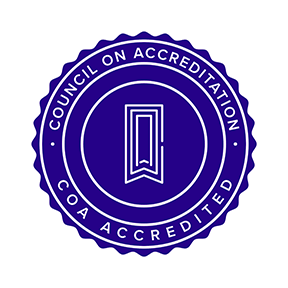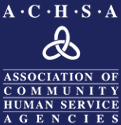Core Services: Access to Mental Health
20th of April 2017

The Continuum of Care Reform (CCR) was designed so that children living out of their home would be provided the most appropriate placement in committed nurturing foster homes. Services and supports will be tailored based on each child’s needs. All of these services and supports fall into 6 Core Services: mental health, transition support upon entry, educational/physical/behavioral/extracurricular support, transition to adulthood support, permanency support, and Native American child services.
The Trinity Youth Services (TYS) team, along with our foster/resource families, will directly provide the core services and support to children, Non-minor Dependents (NMD) and their families fulfilling the requirements of CCR.
In this blog, we will outline the first Core Services, Specialty Mental Health Services, and how TYS will provide that service.
Trinity Youth Services is contracted with the Los Angeles County Department of Mental Health (LADMH) as well as San Bernardino County Department of Behavioral Health (SBDBH) to provide an array of Specialty Mental Health Services including: Individual/Family Therapy, Collateral Interventions, Medication Support, Therapeutic Behavior Services (TBS), In Home Behavior Support, and Targeted Case Management. These services are delivered by therapists meeting the requirements of each County’s contracts and the California Board of Behavioral Sciences. TYS therapists are trained in Evidence-Based Practices and Outcome Measures designed to meet the needs of the children served.
Assessment
Each child receives a comprehensive assessment upon intake to determine the appropriate course of treatment involving therapy, medication, school, recreation, reunification with family, or transitional housing. Once the assessment is completed, a treatment plan is developed with the Child and Family Team (CFT) to determine goals intended to reduce symptoms, improve behavior, and improve interactions with family and other areas of concern. The primary goal is to return each child to his/her family whenever this is possible and appropriate, to a lower level of placement, or to another permanent placement such as adoption.

Individual Treatment
Each child who meets medical necessity receives individual therapy on a weekly basis, provided by a highly-qualified therapist. Therapy is conducted in English, or efforts are made to secure staff to assist in providing services in the most comfortable language for the child, along with appropriate cultural competency and humility. Sessions can address a multitude of presenting problems, including those relating to trauma, anger, victimization, substance abuse, and mood disorders (anxiety, depression, etc.). Therapists are able to utilize several Evidence-Based Practices (EBP) that fit the specific challenges of each child, and they will monitor progress with accompanying outcome measures.
Family Therapy and Family Reunification
Family plays a very important role in successful treatment. Every effort is made by the CFT to ensure family contact/participation, including assistance with transportation or language barriers. This will be accomplished under the guidelines of the Core Practice Model through Child Family Team Meetings (CFTM). Family therapy occurs at least monthly or more often as needed.
Evidence-Based Practices
All children are assessed to determine the best course of treatment to address their mental health needs. In addition to the standard therapeutic methods for which clinicians are routinely trained, Trinity offers three other Evidence-Based Practices designed to address a variety of complex mental health issues:
- Seeking Safety: Seeking Safety is a trauma informed model focusing on developing alternative functional coping skills. It also addresses topics related to anger management, substance abuse and prevention. Seeking Safety, while used in Individual Therapy as appropriate, is also the group model for Anger Management and Drug Prevention;
- Trauma Focused Cognitive Behavior Therapy (TFCBT): TFCBT is an individual, short-term treatment that involves individual and joint sessions with the child and parent. The goal of TFCBT is to help address the bio-psychosocial needs of the child and sharing their trauma narrative with their parents or primary caregivers. Some TYS therapists are similarly trained in Individual Cognitive Behavior Therapy (I-CBT);
- Managing and Adapting Practice (MAP): This approach allows the clinicians to adapt treatment to scenarios where children have more than one problem area. This approach uses research studies, tracks progress, and implements multiple interventions best suited to the individual child.
Medication Support
Psychiatric evaluations are initially conducted by a licensed psychiatrist to determine if medications are needed and to provide further diagnostic information to the assessing therapist. If medications are prescribed, the child attends follow up psychiatric visits at least monthly, or as often as needed as determined by the treating doctor. When medication is not necessary/prescribed, children may continue psychiatric care if referred for specific issues or needs.
Stay tuned for my next blog, which will cover transition support. This topic dives into the important support offered to TYS children as they enter foster care.
 Jackie Jakob, Foster Care and Adoptions Director
Jackie Jakob, Foster Care and Adoptions Director
Having over 20 years’ experience, Jackie currently oversees Trinity Youth Services’ operations of foster care and adoptions programs throughout Southern California and in Houston, Texas. She received a bachelor’s degree in law and society from University of California Santa Barbara, a master’s degree in social work from California State University Long Beach and recently became a Licensed Clinical Social Worker. Jackie enjoys spending time with her husband and two children attending various baseball, softball and judo meets. She is on the parent board for a judo dojo and is one of the troop leaders for her daughter’s Girl Scout troop. Additionally, she really enjoys running half marathons and aims to run 4 to 5 races each year.
Tel: 909.825.5588 | Email: info@trinityys.org




